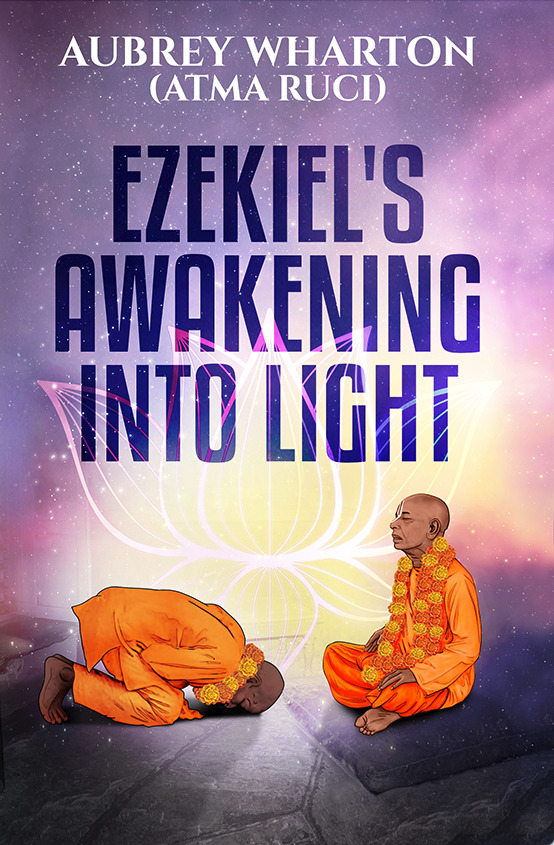
Take an eye-opening journey through the trials of spiritual enlightenment with Ezekiel’s Awakening Into Light by Aubrey Wharton, a thoughtful meditation on following your own unique path.
Ezekiel left his life and love behind to become a devotee of an ashram on the other side of the world, but it didn’t take long before he struck out again on his own, to the great chagrin and rebuke of his brother monks. Leaving his two-man transcendental band behind, Ezekiel embarked on a “journey to nowhere” – more specifically, to Florida, abandoning the life of pure asceticism and brotherhood for solitude and study on his own terms. However, even after decades of isolation, his past came to find him, in the form of his 35-year-old son, Maurice. Ezekiel’s awakening is sparked by this unexpected visit, from a son desperate to deliver on a promise to his mother.
Ezekiel returns to Guyana to reconnect with Myra, the woman he had left behind thirty-six years earlier, but three decades apart have changed them both in innumerable ways, and while the initial passion of their reunion is bright and authentic, dark resentments lie just over the horizon. The titular character’s revelations then come in disjointed stages throughout the book, as he renegotiates his relationship with love, family, and duty. Though Ezekiel had spent decades focused on himself and seeking truth, the real test of his wisdom doesn’t come until he must face his past, and all that he had abandoned during his quest for enlightenment.
The novel’s patient plot spills out in thought-provoking conversations, existential diatribes, and stretches of narrative monologue, taking readers on an uncertain adventure of forgiveness and struggle through jumps in time, revealing Ezekiel’s resilience throughout his life, as well as his unavoidable human failings as a husband, father, brother, and friend. Like other spiritually-oriented books, there is a dream-like, almost mythological element to this story, and the sense that every decision and event is weighted with meaning and symbolism.
Wharton’s rich and descriptive language plays into this dramatic narrative atmosphere: “But this confinement enveloped him, coiling its snare around him until he became stuck.” More notably, Wharton has a way of summoning an environment with a handful of sentences, conveying the mood of a crowd, the feel of a village square, or even the collective experience of music: “With a steady hand Mukunda played the harmonium with reverence and devotion, while Ezekiel stroked and slid his hands along the surface of the drum like one possessed.”
On the technical side of the writing, the text is clean and well-edited, but there are some inconsistencies when it comes to colloquial language, such as speech patterns disappearing for a few lines in the middle of a conversation. There are some stretches where every sentence is either plot-progressing or clearly crafted with intention, but other passages where the writing feels more flat and unpolished. A final editing pass to smooth these stark shifts would really elevate the novel, as so much of the writing is of a high caliber.
Despite some small slips in the execution, Ezekiel’s Awakening Into Light is an intensely moving and deeply human exploration of faith, purpose, loyalty, and love, and one that is not to be missed, as by the end of the novel one feels to have undergone a transformation along with the characters.
Book Links
STAR RATING
Design
Content
Editing
Get an Editorial Review | Get Amazon Sales & Reviews | Get Edited | Get Beta Readers | Enter the SPR Book Awards | Other Marketing Services






















Leave A Comment